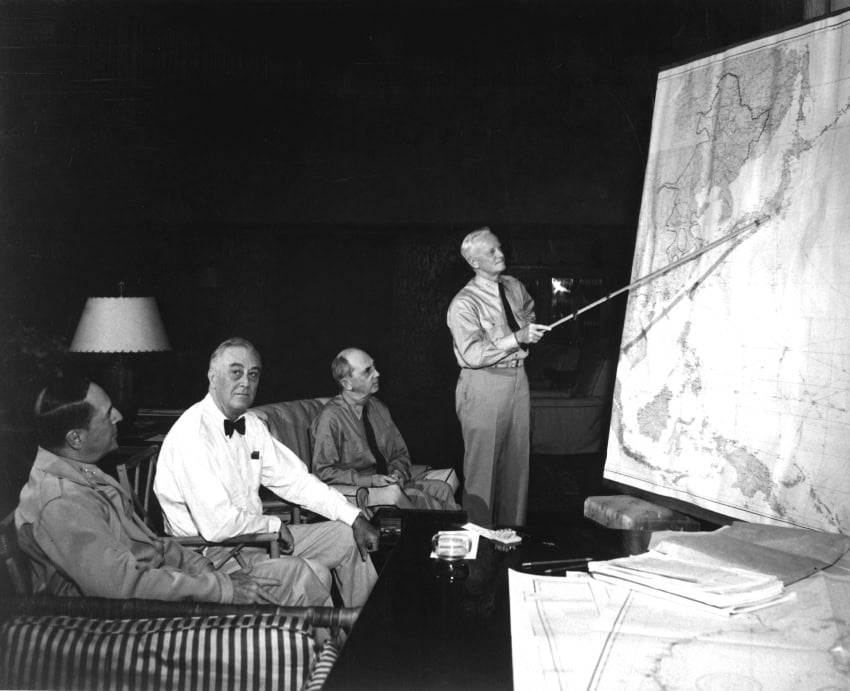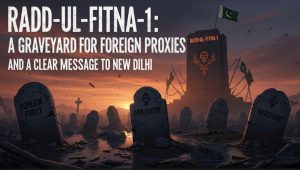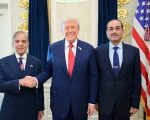“In many instances in the United States in the 1930s and 1940s pro-Communism and pro-Zionism could be found in the same individuals, who were almost invariably Jewish.” – David Martin in “The Assassination of James Forrestal”
In a previous article “Who Was Franklin Delano Roosevelt?” the fact that Roosevelt (FDR) had surrounded himself with Jewish advisors, to the almost total exclusion of Gentiles, was mentioned. Quoting Benton Bradberry, a sample list of about thirty names was mentioned. But the selection of Jewish advisors was not random. Douglas Reed has pointed out a most important aspect regarding this selection. He writes (emphasis added): “These leading names, from the personal entourage of the president, represent only the pinnacle of an edifice that was set around American political life. This sudden growth of Jewish influence, behind the scenes of power, obviously was not a spontaneous natural phenomenon. The selection was discriminatory; anti-Zionist, anti-revolutionary and anti-world-government Jews were excluded from it.”
The exclusion of Jews who did not favor Zionism, Communism and One World Government, from any formal or informal role in his decision making, indicates that FDR had been brought to power for achieving certain goals. He was to strengthen Zionism, Communist Soviet Union and, through a world war aimed at defeating Germany, pave the way for the establishment of the U.N. and Israel. The destruction of Germany meant the destruction of the only power that could unify and lead a Christian Europe. The destruction of Germany also enabled the control of East Europe by Communist Russia and the brutal repression of Christians by Jews masquerading as Communists.
The group surrounding FDR, and in fact FDR himself, did not have the interests of America close to their hearts – their interests were tribal and they wanted to use U.S.A. for the establishment of a global dictatorship of the international bankers, euphemistically called One World Government or the New World Order. Reed points out that the “palace guard” was unpopular, “but unofficial advisors are difficult to attack on specific grounds and Mr. Roosevelt ignored all protests, and so escorted began his thrice renewed presidency.” They had captured the office of the President and placed a man in the White House who believed in these “ideals”.
Douglas Reed has revealed something very important about FDR in the regard. He points out the two decades between the two wars showed that “the League of Nations” could not enforce peace. He then states: “Nevertheless as the Second War approached the men who were to conduct it again were busy with this idea of what they called a ‘world authority’ of some kind and the one common thing in all their thought about it was that ‘nations;’ should give up their ‘sovereignty’. Mr. Roosevelt (according to Mr. Baruch’s biographer Morris V. Rosenbloom) as far back as 1923, after his paralysis, devoted his sickbed time to drafting ‘a plan for peace’ which, as president, he revised in the White House, then giving his blueprint the title, ‘The United Nations’.” Thus it is clear that FDR was also committed to a One World Government at the expense of U.S. sovereignty.
The men around FDR had only the interests of Zionism in their hearts and minds and strived for a Zionist One World Government with Jerusalem as its future capital. Therefore, the creation of Israel was also one of the aims of the two World Wars. One can give details regarding each one of these mysterious and driven advisors, but that would take up a lot of space. However, we may mention just one of these to illustrate their dominant priority. Justice Louis Brandies was appointed Justice of the Supreme Court in the tenure of Woodrow Wilson. He established a secret society by the name Parushim, and continued his association with it despite being a judge of the Supreme Court of the United States – he had no qualms about such an association. The oath of this secret society has been has been described by Sarah Schmidt of the Hebrew University in Jerusalem, in the September 1975 – June 1976 issue of journal American Jewish History Quarterly.
The oath of this society was as follows: “You are about to take a step which will bind you to a single cause for all your life. You will for one year be subject to be subject to an absolute duty whose call you will be impelled to heed at any time, in any place, and any cost. And ever after, until our purpose shall be accomplished, you will be fellow of a brotherhood whose bond you will regard as greater than any other in your life – dearer than that of family, of school, of nation. By entering this brotherhood, you become a self-dedicated soldier in the army of Zion. Your obligation to Zion becomes your paramount obligation… It is the wish of your heart and your own free will to join our fellowship, to share its duties, its tasks, and its necessary sacrifices.” One may note that the oath places loyalty to the brotherhood i.e. to the army of Zion, above the loyalty to the nation. And this commitment to Zionism and to world revolution was what dominated the hearts and minds of men around FDR. The interest of the U.S. was not close to their heart – the U.S. was a tool for the attainment of their purposes and the Americans were canon-fodder for the attainment of their ends. The situation continues to date in the garb of neocon control of present day U.S. governments.
The reelection of FDR in 1936 was ensured by the assassination of a contender named Huey Long. Long could not have been elected himself but he could have ensured FDR’s defeat. A popular politician from Louisiana, Long had predicted that he would be assassinated as he was aware of an assassination plot. And indeed on September 8, 1935, Long was assassinated by a Jew named Dr. Carl Austin Weiss, ensuring a Zionist FDR’s reelection. E.M. Josephson points out: “The first move was building up a propaganda system that was so vast that it could distort in the desired manner any intelligence that reached the public.” For this purpose, FDR selected two of his colleagues from the days of WWI who had worked for the propaganda agency known as the Naval Information Committee, and appointed them his White House assistant secretaries. One of them, Marvin Hunter McIntyre, was made in charge of appointments and political affairs. The other Stephen Early, ex-editor Stars and Stripes, the A.E.F. propaganda agency, was placed in charge of the press and public relations.
In the year after he was reelected, FDR began his efforts at moulding the reluctant American mind towards war against the Germans. Thomas Dalton writes in “The Jewish Hand in World Wars” (emphasis added): “In October 1937, Roosevelt gave his famous ‘quarantine’ speech. Here we find the first indications, albeit indirect, that he anticipates a time when the U.S. would come into conflict with Germany, and he subtly propagandizes the public in favor of war. The danger of Hitler is exaggerated; neutrality and isolation are disparaged; baseless assertions and cautiously conditioned statements are thrown out – and all in the language of peace.”
Dalton gives excerpts from FDR’s speech proving the aforementioned point. He writes (emphasis added): “Should Hitler prevail, ‘let no one imagine that America will escape, … that the Western hemisphere will not be attacked.’ ‘There is no escape through mere isolation and neutrality,’ he exclaimed; ‘international anarchy destroys every foundation for peace.’ ‘We are determined to keep out of war,’ said FDR, ‘yet we cannot insure ourselves against the disastrous effects of war and the danger of involvement.’ Sparing no hyperbole, he stated that, if Germany initiates a war, ‘the storm will rage till every flower of culture is trampled and all human beings are leveled in a vast chaos.’ This is difficult to read except as an indication that the path of violent confrontation had already been decided upon, and the long process had begun to persuade a reluctant public that they must support it.”
John Wear has pointed out that Sir Ronald Lindsay, the British ambassador to the U.S. had a secret meeting with FDR on September 18, 1938. A report of the meeting that the ambassador sent to this government confirmed that FDR wanted war against Germany. “Roosevelt said that if Britain and France were forced into a war against Germany, the United States would ultimately join the war. Roosevelt’s idea to start was war was for Britain and France to impose a blockade against Germany without actually declaring war.” He felt that such blockade would “provoke some kind of German military response but free Britain and France from having to declare war.” Wear states that according to the report the important thing was to “call it a defensive war based on lofty humanitarian grounds…” FDR also told Lindsay that if Germany reacted militarily against blockade he could convince the American public to support war against Germany. He also said that if news of his conversation with Lindsay became public he would face impeachment. So as early as September 1938 FDR had declared his desire for manipulating war against Germany – and he knew well that he was being dishonest and was engaging in illegal activity.
German writer Udo Walendy has mentioned an August 24, 1939 letter that the British ambassador Lindsay wrote to the British Foreign Office. Walendy writes that the ambassador reported that Roosevelt was “delighted at the prospect of new World War.” The ambassador wrote that “Roosevelt also promised that he would delay German ships under false pretenses in a feigned search for arms, so that they could easily be seized by British under circumstances that would be arranged with exactitude between the American and British authorities.” This is most astonishing. The United States was not at war with Germany and even the British were not yet at war with Germany. What was the purpose of this other than provoking Germany and trying to launch a World War? Walendy writes: “The British ambassador was personally perturbed that the President of one of the important countries could be gay and joyful about a tragedy which seemed so destructive of the hopes of all mankind. He reported that Roosevelt ‘spoke in a tone of impish glee, and although I may be wrong, the whole business gave me the impression of resembling a schoolboy prank.’”
The foregoing establishes that FDR wanted war and was trying to do everything he could to bring it about. He did not care a damn about the fact that America was a neutral country, and that his people did not want to get entangled in European conflicts. He did not care about American lives that would be lost as a result. He, therefore, rejected a German offer that the U.S. act as a mediator in the German dispute with the Polish and the Czechoslovaks. He was not interested in mediation – he wanted war. Hermann Goering had met with the American negotiator W.R. Davies and made an offer if the U.S. mediated. FDR refused to meet Davies. When Davies sent him a detailed report on his meeting with Goering, FDR ignored it completely and did not respond. The message that Goering had given Davies was: “You can assure Mr. Roosevelt that if he will undertake mediation, Germany will agree to an adjustment whereby a new Polish State and a new Czechoslovakian independent government would come into being. I agree that the conference should be in Washington.” What better offer to avoid war and to settle matters could be made. But FDR did not want peace – he, and his Zionist-Jewish advisors stood for a World War.
In order to prevent the State Department from following a principled policy in regard to European affairs, FDR bypassed the State Department. He chose William Bullitt as his man in Europe. Bullitt, who belonged to a rich banking family, had a Jewish background, and had strong communist leanings, having met Lenin as a young man. He was married to the widow of the well-known communist John Reed. Bullitt had been ambassador to the Soviet Union, and since 1936, had been ambassador to France. Bullitt was a known homosexual, and as ambassador to Russia asked for a male secretary. Carmel Offie, who later joined the OSS and subsequently CIA, became his secretary and his lover!
In the Spring of 1938 FDR took the unprecedented step of subordinating all U.S. ambassadors in Europe to William Bullitt! Bulliit’s ancestors were German Jews but Bullitt had a pathological hatred of Germany. Benton Bradberry has referred to Bullitt as FDR’s “agent provocateur” in Europe. He writes: “Roosevelt bypassed the State Department and frequently spoke with Bullitt directly by telephone, often daily, giving him precisely detailed and ultra-confidential instructions on how to conduct American foreign policy. Bullitt had access to Roosevelt by telephone at any hour of the day or night …. In Europe Bullitt spoke with the authority of President Roosevelt himself.”
In Bullitt, the Zionist Jewish banker FDR had chosen another Zionist Communist Jewish banker to conduct U.S. foreign policy over and above the head of the State Department so that war could be precipitated. John Wear points out that the American columnist Karl von Weigand met with Bullitt in Paris on April 25, 1939. Bullitt informed Weigand: “War in Europe has been decided upon. Poland has the assurance of the support of Britain and France, and will yield to no demands from Germany. America will be in the war soon after Britain and France enter it.” When Weigand observed that such a policy will end up pushing Germany into the Bolshevik lap, Bullitt remarked: “What of it. There will not be enough Germans left when the war is over to ne worth Bolshevising.” So FDR and Bullitt and their fellow tribesmen wished to use the U.S., Britain and France to wipe out the German race.
At the start of the year 1939 FDR delivered a State of the Union address asking for $2 billion in defense expenditures. What for? The U.S. was not at war and no country was expected to attack America. It simply indicated that FDR had decided upon war. In his address there were veiled threats. Dalton quotes from his speech: “We have learned that God-fearing democracies of the world… cannot safely be indifferent international lawlessness anywhere. They cannot forever let pass, without effective protest, acts of aggression against other nations.”
In February 1939, Juliusz Luckaseiwicz, the Polish ambassador to the France sent a detailed and highly secret report to his government. He had met with William Bullitt, who was the most trusted man of FDR in Europe. Bullitt had just returned from a three-month period spent in the U.S. Bullitt told the Polish ambassador that the U.S. could not afford a British and French defeat at the hands of a German-Italian alliance. According to the report Ambassador Bullitt stated: “Should war break out we shall certainly not take part in it at the beginning, but we shall end it.” And when Bullitt said it, that meant FDR said it. War against Germany had been decided upon by FDR and his “advisors”.
Jerszy Potocki, the Polish ambassador to the U.S. from 1936-1940, reported that William Bullitt spoke with “extreme vehemence and extreme hatred” for Hitler and Germany. Bullitt predicted a war with American involvement and “advocated that it should be fought to a point where Germany could never recover.” It is clear that the Zionist Jewry, the tool and face of international bankers, had decided on complete destruction of Germany. The U.S. ambassador to Britain Joseph Kennedy, father of John F. Kennedy, saw that European and American Jewry was hell bent upon dragging leading Christian nations into war against one another and tried to urge his government to work for a negotiated settlement between Poland and Germany.
Roosevelt desired war and so a negotiated settlement had no place in his scheme of things. Benton Bradberry points out that “Roosevelt rejected Kennedy’s efforts and Kennedy’s pleas as the ‘… silliest message to me that I have ever received.’ Roosevelt told Henry Morgenthau that ‘Kennedy was a pain in the neck…. Joe has been an appeaser and will always be an appeaser’, Roosevelt said. ‘If Germany and Italy made a good peace offer tomorrow, Joe would start working on the King, and his friend the Queen and from there down on everybody to accept it.’” Even a “reasonable peace offer” was unacceptable for FDR simply because he was a Zionist with Jewish roots and wanted war and destruction of Germany.
Jewish lobbies in the UK, US and elsewhere had begun a systematic lobbying campaign for military action against Hitler. The Polish diplomat Jerszy Potocki noted as early as February 1938” “The pressure of the Jews on President Roosevelt and on the State Department is becoming ever more powerful… The Jews are right now the leaders in creating a war psychosis which would plunge the entire world into war and bring about general catastrophe. This mood is becoming more and more apparent. In their definition of democratic states, the Jews have also created real chaos; they have mixed together the idea of democracy and communism, and have above all raised the banner of burning hatred against Nazism.” Potocki also noted that “This hatred has become a frenzy.” He also wrote in the same report: “In conversations with Jewish press representatives, I have repeatedly come up against the inexorable and convinced view that war is inevitable.” As early as February 1938 the Jewish media representatives were convinced that war was “inevitable”. In the same year 1938 Bernard Baruch, the deep agent of the High Cabal told General George Marshall: “We are going to lick that fellow Hitler. He isn’t going to get away with it.” If Bernard Baruch said so it meant that the High Cabal had decided upon war with Hitler and upon the destruction of Germany.
Dalton mentions that Senator Hiram Johnson of California wrote to his son that the pro-war and anti-war camps could be clearly identified (in the U.S.). He wrote: “All the Jews [are] on one side, wildly enthusiastic for the President, and willing to fight to the last American”. He wrote that many politicians wished to speak against war, “but everybody is afraid – I confess I shrink from it – of offending the Jews.” A similar story was going on in Britain. Lord Beaverbrook, the British media mogul and politician wrote to the American publisher Frank Gannett in December 1938: “The Jews are after [Prime Minister] Chamberlain. He is being terribly harassed by them… All the Jews are against him… They have got a big position in the press here [in the UK] … I am shaken. The Jews may drive us into war [and] their political influence is moving us in this direction.” Chamberlain did not want war and was therefore, eventually ousted and replaced by the agent of the bankers Winston S. Churchill.
In the year 1939 events in Europe moved towards an avoidable war. The manipulation by FDR was crucial in forcing war in Europe. Firstly, on March 14, 1939, the Slovaks decided to secede from Czechoslovakia resulting in the dissolution of the state. Emil Hacha, the then Czechoslovakian president, signed an agreement with Hitler the following day establishing a protectorate over Bohemia and Moravia, the Czech portion of the dissolved state. Since the Czechoslovak state had dissolved the British government felt that its guarantee to protect the state had become void as a result. This meant that Britain had accepted the situation. But, according to John Wear, Bullitt became “hysterical” and phoned FDR to denounce Hitler and to get the Neutrality Act repealed. Bullitt was hysterical because planned war was being averted.
In their syndicated column Drew Pearson and Robert Allen wrote on March 16, 1939, that Roosevelt had given a “virtual ultimatum” to Chamberlain, the British PM, demanding opposition to the arrangement over Bohemia and Moravia. According to the two columnists Roosevelt warned that “Britain could expect no more support, moral or material through the sale of airplanes, if Munich policy continued.” The very next day Chamberlain denounced Hitler in a speech at Birmingham and announced that from now on Britain would oppose any further territorial moves by Hitler.
Chamberlain has been condemned in “standard” history as an “appeaser”. This condemnation means that he genuinely wanted peace but was not strong enough to counter FDR and the well-known Milner Group that, working for the bankers, brought about the two World Wars. In fact, according to Carrol Quigley, the first frontier rectification in Czechoslovakia in favor of Germany was demanded by Chamberlain on September 7, 1938! Hitler never demanded it. And why was the liquidation of Czechoslovakia of desirable? Guido Preparata states: “The British plan, clearly, was to dismember Czechoslovakia which, with 34 sterling divisions, 1 million men, well trained, and with a high morale, could very well stall Hitler in the middle of Europe.” So the territorial “moves” with regard to Czechoslovakia were not Hitler’s, but Britain’s doing!
The situation in Poland was also precipitated by FDR and by Britain’s cabal known as Milner Group (Milner had died in 1925 but the Group he had headed for almost a quarter century had carried on). Not only did FDR refuse mediation he instigated the myopic Polish generals by assuring them of support in a war against Germany. Germany was sucked into Poland by the brutal murders and rapes of Germans living in that country. Hitler had done his best for a negotiated situation but FDR and Britain prevented this by pumping up Polish rulers and finally giving them a free hand that in case of hostilities between Germany and Poland Britain will stand with Poland regardless of who aggressed first!
The Polish Jewry also made a vital contribution in regard. William Joyce wrote (emphasis added): “Now, it was only a question of time before the conflagration came. The Polish Government, as a direct consequence of the unconditional pledges given by Mr. Chamberlain, was reveling in the persecution of its German subjects. As early as May, German men and women were hunted like wild beasts through the streets of Bromberg. When they were caught, they were mutilated and torn to pieces by the Polish mob, almost invariably led by Jews. When the streets were red with German flesh, Duff-Cooper was boasting that Poland alone had the right to decide when war should come.”
John Wear points out that Anthony Drexel Biddle, the U.S. ambassador to Poland, was an “ideological colleague” of FDR and a “good friend” of Bullitt. “Roosevelt used Biddle to influence the Polish government to refuse to enter into negotiations with Germany.” Wear refers to the memoirs of Carl J. Burckhardt, the League of Nations High Commissioner to Danzig. “On December 2, 1938, Biddle told Burckhardt with remarkable satisfaction that Poles were ready to wage war over Danzig. Biddle predicted that in April a new crisis would develop, and that moderate British and French leaders would be influenced by public opinion to support war. Biddle predicted a holy war against Germany would break out.”
In accordance with what Bullitt had told Burckhardt, FDR began pushing things in the direction of confrontation. Nick Kollerstrom writes (emphasis added): “Following 15 March, 1939, Roosevelt exerted strong pressure on the British government to ‘finally exert pressure’ against ‘Nazi tyranny’ or else he would apply methods of coercion against Britain. It is impossible to determine precisely what threats he made, since their correspondence is still off-limits to historians.” One may remember that on March 31, 1939 Chamberlain gave Poland the “blank cheque” that in the event of war with between Poland and Germany, Britain will declare war on Germany! This was regardless of who aggressed first.
At the same time Bullitt sent a secret telegram to Washington on April 9, 1939, in which he mentioned his meeting the Polish ambassador Lukasiewicz. Bullitt wrote: “The Polish ambassador asked me if it might not be possible for Poland to obtain financial help and airplanes from the United States. I replied that I believed the Johnson Act would forbid any loans from the United States to Poland, but added that it might be possible for England to purchase planes from the United States and turn them over to Poland.”
It was therefore no wonder that the Polish leadership lost its mind. On May 18, 1939, when the French General Staff asked the Polish Minister for War General Kasprzycki if Poland had any fortifications at its borders against a German attack, he replied, “We do not have any, as we intend to wage mobile warfare and to invade Germany right from the outset of fighting.” On June 1, 1939, the Polish army chief stated publicly: “Poland wants war with Germany and Germany will not be able to avoid it, even if it wants to.” On August 15, 1939, the Polish ambassador to France told the French Foreign Minister: “It will be the Polish army that will be invading on the first day of war.” Not a single public statement was made by German leaders declaring an intent to go to war.
Textbook history, while citing German “aggression” against Poland as the cause of WWII simply omits the machinations of FDR and Britain to trap Germany, and to instigate Poland. The role of Stalin in this regard is also omitted and will be dealt with in a subsequent article. What is also omitted is the most reasonable solution to the Danzig corridor problem proposed by Hitler. German territory, including the port city of Danzig, were handed over to Poland after WWI. Hitler did not ask for return of those territories but only desired political control of the port city with complete economic freedom for Poland. Sir Neville Henderson wrote in his letter dated May 4 1939: “According to my Belgian colleague, practically all the diplomatic representatives here regard the German offer in itself as a surprisingly fair one. The Dutch Minister, the United States Charge d’ Affairs and my South Asian colleagues have spoken to me in that sense…” Once Germany had been sucked into Poland, Britain and France declared war on Germany. And that meant the start of WWII.
What is also omitted from standard history are Hitler’s efforts to avoid war by putting up genuine proposals to keep Europe free of War. FDR and the British Milner Group did not want peace – they wanted the utter destruction of Germany. The Pearl Harbor intrigue that enabled FDR to drag the U.S. into WWII will be dealt with separately. One may end by quoting Churchill: “You must understand this war is not against Hitler, or National Socialism, but against the strength of the German people, which is to be smashed once and for all, regardless whether it is in the hands of Hitler or a Jesuit priest.”














